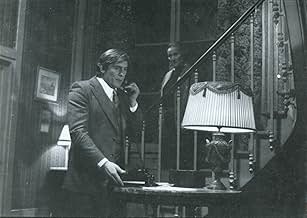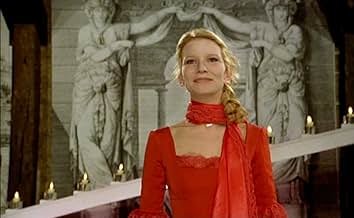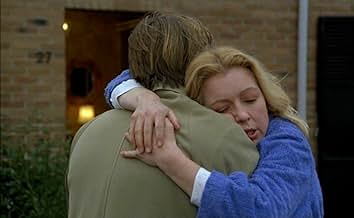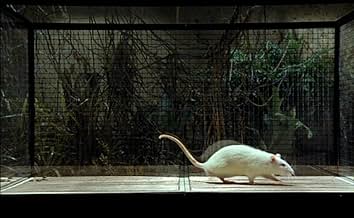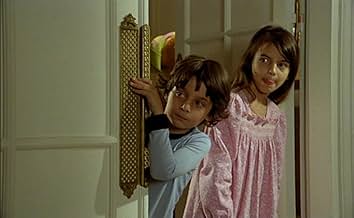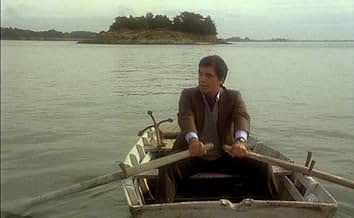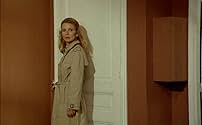As histórias cruzadas de três pessoas que enfrentam escolhas difíceis em situações de mudança de vida são usadas para ilustrar as teorias defendidas por Henri Laborit sobre o comportamento h... Ler tudoAs histórias cruzadas de três pessoas que enfrentam escolhas difíceis em situações de mudança de vida são usadas para ilustrar as teorias defendidas por Henri Laborit sobre o comportamento humano e a relação entre o eu e a sociedade.As histórias cruzadas de três pessoas que enfrentam escolhas difíceis em situações de mudança de vida são usadas para ilustrar as teorias defendidas por Henri Laborit sobre o comportamento humano e a relação entre o eu e a sociedade.
- Direção
- Roteiristas
- Artistas
- Indicado a 1 Oscar
- 11 vitórias e 12 indicações no total
- Le père de René
- (as Maurice Gauthier)
- Direção
- Roteiristas
- Elenco e equipe completos
- Produção, bilheteria e muito mais no IMDbPro
Avaliações em destaque
I have always had a bad taste in my mouth with that Jonze/ Kaufman offering, because it was too smug for its own good and worse, it was emotionally condescending.
But here comes a classic that thumped its nose at conventional human drama and yet came out becoming more humane than most films I have ever seen. Who knew Biological Psychology/ Behavioural Science could breathe such life and heart into a seemingly inconsequential story?
Anyone know where to find a transcript of the film? The last lines uttered by the Doctor summed up everything I loved about this film(and I have seen it just this once!!).
Excellent.
Again, many thanks to my enlightened film buff friends I have met on the net for their strong recommendation of this exceptional master work. For my experiential education in film has received that giant leap with this film.
Will definitely revisit this thought provoking film to fully soak in its wisdom and movie magic. One of the best films I have seen this year!! If you can get hold of it, by all means take that leap, much like I did and be immeasurably rewarded.
This is the first handicup of the film for me. Resnais's consistent mark of genius has been his ability to visualize the mind as a threedimensional space, where by characters who act as our proxies into this world of the mind we can wander that space in an effort to discern the mechanisms that sustain it. How the forms we later experience as real come into being, illusionary. His vision is poignant for me precisely because it is translated as cinema, which as a blank canvas where upon it various flickering narratives are projected, is an ideal replica of the mind. He gave us Hiroshima and Marienbad, which is more than most directors contributed to the medium.
But Resnais always approached his subject as a poet, with capacity for awe and mystery, whereas now his vision feels constricted to fit criteria and structures.
Nonetheless the film does well to present us with situations we may know from life. An illicit thryst, frustrations at work, various ambitions for love or power thwarted, the outcomes of these don't matter. We're meant to identify the roots of suffering, how it arises in the form of sensation within the matrix that we experience as reality.
So far the film is wise, in showing us to be lab rats trapped in a glass panel box which is intermittently electrocuted by unseen devices. Perhaps we come to understand by this how suffering is an inate response to life in the cage, therefore inescapable. And how the devices that produce our suffering are invisible to us from inside the cage. Even more importantly, how our various attempts to imprint meaning on the objects of our world, by naming them or pretending to arrange them into patterns or hierarchies, are merely masks we have devised to conceal simple impulses and desires. To be safe or sated, or to avoid pain.
But the film is cautiously scientific, and will not venture further. The above important realization is mute for me without the spiritual. It is a dry understanding of fascinating stuff.
None of which is very subtle anyway. We're lectured a bit. We actually revisit excerpts of earlier scenes so we can identify specific reactions as narrated to us by the scientist. The lab rat metaphor couldn't beat us around the head more, if we actually saw the actors with the head of a rat reenact an angry exit. Wait, we do! But none of this bothers me overmuch. What bothers me is the pessimism.
Which is to say that having understood all this, the mechanisms that control the apparent reality we experience as our everyday routine, we are in position to transcend them. Our bodies may remain in the cage, yet having understood all this, how various forms of ego and desire blind us, our consciousness is already out of it. A glimpse out of the box is possible. Or as the film says, understanding the laws of gravity does not mean we escape them but we can get to the moon.
This is of course a fundamental attribute of how we are not like animals. We are not even animals with the unique ability to remember and form connections between the objects of memory. We are spirited beings. The film, conservative as issued under the credence or pretence of science, does not dare to articulate as much.
But then we have the final image, which says more than most films ever did. It's something I'll want to keep inside of me.
We see the mural of a tree painted on the brick wall of a building. From a distance, it looks beautiful, perhaps the real thing. But once up close, we see the beautiful, harmonious shape for what it is. Bricks as particles, a structure ugly, functional, nondescript, bearing no resemblance to the overall shape.
Two levels of reality then, apparent and ultimate. Order, shape, meaning from afar. Distinctions between brick and tree, as created in the eye. But once inside we understand the emptiness, the sameness of everything. How the above attributes are illusionary, imprints of the eye upon the wall. Will this image terrify or soothe you?
Perhaps the film understands more than it lets out from its cautious application of science. This is one of the 5 best metaphors in the history of cinema. It's so good, it's worthy of being in Blowup.
ten out of ten
We could say about Mon oncle d'Amérique that it's a totally original film. It's impossible to compare it to any of the other movies in the history.
This piece of art shows in a very elegant and clever way how we human beings behave. It's as brilliant as deeply moving.
Definitely a must-see that reminds us why we used to admire Gérard Depardieu. The use of the archive footage of Danielle Darrieux, Jean Gabin, and Jean Marais are very touching in the middle of a movie that seems to be cold and demonstrative but that is not.
Watch this masterpiece ASAP. You'll never regret it.
Você sabia?
- CuriosidadesThere are several scenes from films featuring Danielle Darrieux, Jean Marais and Jean Gabin used in this film.
- Citações
Henri Laborit: [First lines] A being's only reason for being is being. In other words, to maintain its organic structure. It must stay alive. Otherwise, there is no being.
Principais escolhas
- How long is My American Uncle?Fornecido pela Alexa
Detalhes
Bilheteria
- Faturamento bruto mundial
- US$ 38.465
- Tempo de duração
- 2 h 5 min(125 min)
- Mixagem de som
- Proporção
- 1.66 : 1

![Assistir a Bande-annonce [OV]](https://m.media-amazon.com/images/M/MV5BYWEzZjZmODAtMjgzNS00NTYzLTgyZDctZTFhYWE4OTE3NTFkXkEyXkFqcGdeQXRyYW5zY29kZS13b3JrZmxvdw@@._V1_QL75_UX500_CR0)
